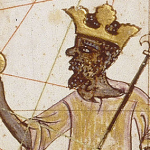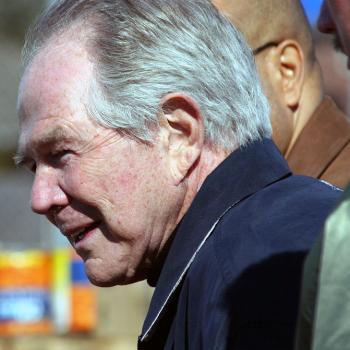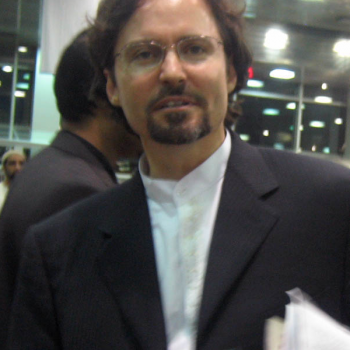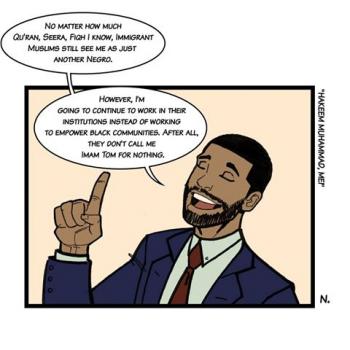In his autobiography, Dreams from My Father: A Story of Race and Inheritance, former president Barack Obama discusses reading the literary works of very prominent black leftist intellectuals: W.E.B Dubois, Langston Hughes, James Balwdin, and Richard Wright.
Obama, states that though the literary works had their merit, within, every one of these works he found,””the same anguish, the same self doubt; a self contempt that neither irony nor intellect seemed able to deflect.”
However, Obama discovered an exception after reading the autobiography from a certain black Muslim,””Only Malcolm X’s autobiography seemed to offer something different. His repeated acts of self creation spoke to me;…martial in its discipline forged through sheer force of will.”
This attribute which Barack Obama describes within Malcolm X, of the power of discipline, force of will to break through, overcome, and persevere through oppression to change the reality of black people was not an attribute exclusive to him but an integral element of the self improvement tradition of the African-American Muslim tradition.
In A Nation Can Rise No Higher Than Its Women: African American Muslim Women in the Movement for Black Self-Determination, Dr. Bayyinah Jeffries writes that, “African Americans who converted from Christianity to Islam took great strides to improve themselves and the status of Black people.”
Elijah Muhammad, through the Nation of Islam, created the most effective self improvement program in American history. #BlackHistory
— Adam Jackson (@SmartBlackMan) February 1, 2012
This self-improvement tradition is an integral aspect of black Muslim culture which even influences how black Muslims utilize social media. Beginning early in the morning, Black Muslims use Twitter, Instagram, and other social media to post inspiring, motivating, and uplifting messages that exhort one another to productivity, industriousness, self-discipline, the avoiding of frivolous and mundane actions, and goal setting and aacquisition as they go about their respective days.
A Goal without a plan is not a goal.
It is a wish! And a wish is a desire with no energy behind it.
— NURI MUHAMMAD (@BrotherNuri) January 6, 2017

In another highly inspiring message, brother Deric Muhammad states, “Idleness gives room for doubt and fears. Stay working!” This inspiring messages receive retweets from other believers and serve as a source of motivation and encouragement as one deals with the obstacles of their everyday life.
Structural Racism & The Law of Self Improvement
Malcolm X once commented that one of the most damaging impacts of structural racism was the loss of human potential. Malcolm X stated that many of the black brothers and sisters he grew up with had the minds to be great scientist and mathematicians. However, as a result of the oppressive aspects of inner-city life, they simply became victims of a cruel social system.
As a result of the extreme oppression and persecution facing black people, a culture of nihilism often develops particularly within urban ghettos. They lose sight of their vision and purpose. The significance of books such as The Restrictive Laws of Islam Are Our Success and Self Improvement is the basis for Community Development is that they provide guidelines on the building of the human potential which a system of white supremacy seeks to rob among black people.
In Self Improvement is the Basis for Community Development, Min. Farrakhan states,”There is no difficulty that man is faced with that man does not have the ability to overcome, if he will summon the strength of his being against that obstacles in the pathway of his progress.” The Self Improvement tradition within Black Muslim Culture exhorts black folks with the tools to maintain a vision and goals even in the midst of severe persecution and oppression.
Physical Fitness
Physical fitness and observance of strict dietary laws also constitute an element of the self improvement tradition of black Muslim culture. If one is to overcome the struggles and obstacles of life, working out and engaging in high-intensity cardio training serves as a means to develop the will power to overcome obstacles.
Since the black Muslim has to accomplish various tasks, the Black Muslim must be physically fit and properly nourished in order to be productive to carry out his or her responsibilities.
C. Eric Lincoln, a prominent researcher on Black Muslim life wrote that, “While criticizing black men for their weaknesses, however, NOI leaders offered numerous counterexamples of black men who converted to Islam, and in doing so had become strong and disciplined. There was no more potent symbol of the strong black Muslim male than Muhammad Ali, the heavyweight boxing champion.”
In pursuit of the image of the “strong black Muslim male,” exemplified by Muhammad Ali, young believers spend a copious amount of time in martial arts, boxing, weight lifting, and other physical activities to develop their bodies. Showcasing this element of black muslim culture is the film, “F.O.I Commercial”, featuring a young black Muslim who begins his day with prayer and who later engages in weight lifting, climbing, boxing and martial arts training.
The Building of Mental Strength
However, the Black Muslim does not merely focus on physical strength but also in developing mental prowess.In an early speech directed to Muslim women, Malcolm X states,”All of you will agree that your husband is more serious once he became a Muslim than he was when he was a Christian. His serious.” Contrasting a profound difference, Malcolm X states that as a Christian the only topics that which husbands wanted to discuss were frivolous topic.
However, since converting to Islam, their newly Muslim husbands now wanted to discuss the sun, moon, stars and even cracking atoms. Malcolm X adds,”Even if he doesn’t know what his talking about, that’s what he wants to talk about.” The building of intellectual strength through the pursuit of knowledge is an integral element of black Muslim life.
While in prison, Malcolm X wanted to write a letter to the Honorable Elijah Muhammad but expressed that his writing abilities were so poor that he did not feel worthy enough to write him, “Every word I spoke was hip or profane. I would bet that my working vocabulary wasn’t two hundred words.” Taking direct action for self-improvement, Malcolm X embarked on a campaign to read a myriad of books and even wrote out the entire dictionary in a concentrated effort to increase his vocabulary and command of English.
Later, when Malcolm X became a minister, Benjamin Karin, the assistant minister, reported the copious amount of readings Malcolm X’s required many believers to do was on part with any Ph.D. program at a major university. Having extensively studied the dictionary in prison, The Cambridge Companion to Malcolm X reports that he, ”used words like weapons.” Minister Farrakhan similarly comments that, “He could spit words out so fast, he knew the roots of words.” Though Malcolm X only had an eighth-grade education, his commitment to self-improvement enabled him to debate Ph.D. scholars and prominent television journalists and thoroughly deconstruct their argument.
Malcolm X’s study of the dictionary facilitated a culture among black Muslims to have an excellent command of the vocabulary and grammar of the English language. Another exemplar of this Black Muslim tradition of English mastery is Minister Farrakhan. Derick Bell, the first black tenured professor of Harvard Law School, refers to Minister Farrakhan as “smart and Super-articulate.”
In the article,”The Law of Racial standing,” published in the Yale Journal of Law and Liberation, Bell writes that many television journalists are, “anxious to put this outspoken black man in his life.” In pursuit of this objective, Bell writes that news stations often hire research staff intending to make Minister Farrakhan seem as ridiculous as possible.Despite this their best efforts, Derick Bell writes that, “There is no contest. Minister Farrakhan, calm, cool, and collected, eats their lunch. I love it.”
In television interviews, Farrakhan speaks with the diction of a scholar of the English language with the cadence of a great musician, refuting the arguments of critics while maintain his poise; often leaving journalist dumbstruck. Min. Farrakhan word usage on t.v interviews actually displays a profound knowledge of Latin. Although Latin is a dead language, Minister Farrakhan reports that Latin language forms a significant amount of the vocabulary of English and is thus worthy of extensive study by Black Muslims.
The Philosophy of Self Improvement
Min Farrakhan teaches us discipline and structure is what we need in order to take control of our lives, and that which is around us.
— Artiium Muhammad™ (@MuslimsLuvJesus) February 15, 2016
The emphasis of self improvement through self-discipline is an integral value in black Muslim life. The Black Muslim is someone constantly seeking to improve themselves and the lives of a people oppressed by over 400 years of oppression. It is often said that due to structural racism, in order to reach the same position in society as whites, black people have to work five times as hard as the average white person.
While simultaneously working to eradicate structural racism through a holy protest against white supremacy, Black Muslims embraced this challenge through what Rosie-Armstrong refers to as, “a rigorous call to discipline.” The concept that one could strike a blow to white supremacy by working to be more self-disciplined than their oppressor impacts the self-improvement tradition in African American Muslim culture
While the oppressor is out involving himself in “sport and play,” the Muslim is studying and developing his mind. While the oppressor is engaging himself in frivolity, the Muslim is engaged in productive, industrious, and enterprising actions. The black Muslim is someone who views procrastination and laziness as an arch enemy to their spiritual, mental, and physical development.
As such, the studious black Muslim arises each morning for Fajr prayer with a self-determined mind to accomplish their goals with the utmost consistency and self-discipline. The Black Muslim breaks out of the habit of random planning and free-styling time. Instead, the black Muslim strives to approach each day with the strictest of self discipline to maximize their productivity. It is through self improvement and self discipline that enables one with the will power to challenge and overcome oppression.












